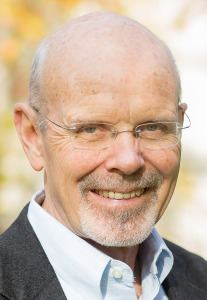2014-2015 Lecture Series

Philip Pettit
L.S. Rockefeller Professor of Politics and Human Values, Princeton University
Distinguished Professor, Australian National University
The Birth of Ethics
Lecture I: From Language to Commitment
With commentary by Michael Tomasello
Tuesday, April 7, 2015
4:10 p.m. – 6:15 p.m., Toll Room, Alumni House
Lecture II: From Commitment to Responsibility
With commentary by Pamela Hieronymi and Richard Moran
Wednesday, April 8, 2015
4:10 p.m. – 6:15 p.m., Toll Room, Alumni House
Seminar and Discussion with the three commentators
Thursday, April 9, 2015
4:10 p.m. – 6:15 p.m., Toll Room, Alumni House
The lectures and the seminar are free and open to the public.
Download and Listen
MP3 Format: Lecture One, Lecture Two, Seminar & Discussion
About Philip Pettit
Philip Pettit is a versatile scholar widely esteemed for his work in political philosophy, the philosophy of mind and action, moral philosophy, philosophy of the social sciences, and metaphysics. Known for his remarkable skill in making links among his diverse contributions, Pettit takes as a core conviction that lessons learned in thinking through problems in one area of philosophy often constitute ready-made solutions to problems found in completely different areas. Important topics addressed include republicanism, justice, and theories of freedom.
A prolific author, Pettit has published nearly twenty books, and contributed chapters to many more. Most recently, he is the author of Just Freedom: A Moral Compass for a Complex World (2014); On the People’s Terms: A Republican Theory and Model of Democracy (2012); and Made with Words: Hobbes on Mind, Society and Politics (2008). His corpus as a whole, which spans over three decades, was the subject of a series of critical essays written by some of the world’s leading philosophers, published in 2007 as Common Minds: Themes from the Philosophy of Philip Pettit.
Pettit was born and raised in Ireland, and educated at the National University of Ireland in Maynooth and Queen’s University in Belfast. He was a lecturer at University College, Dublin; research fellow at Trinity Hall, Cambridge; and professor of philosophy at the University of Bradford. In 1983, he moved to the Research School of Social Sciences at the Australian National University, where he has a continuing position as Distinguished Professor. Since 2002, he has taught political theory and philosophy at Princeton University.
Conversation with History Interview
About the Commentators
Pamela Hieronymi
Professor
University of California, Los Angeles
Pamela Hieronymi is an influential scholar whose work brings together ethics, philosophy of mind, philosophy of action, and questions of moral responsibility and free will. Her writing has tackled issues of trust, forgiveness, and the agency we exercise over our beliefs and intentions.
Publications include “Reflection and Responsibility” (Philosophy and Public Affairs, 2014); “Reasons for Action” (Proceedings of the Aristotelian Society 111, 2011); “Believing at Will” (in Belief and Agency, 2009); “The Wrong Kind of Reason” (Journal of Philosophy, 2005); and “Articulating and Uncompromising Forgiveness” (Philosophy and Phenomenological Research, 2001). Her writing on teaching and technology has appeared in the Chronicle of Higher Education, and she has been a guest on the Philosophy Talk public radio program.
Hieronymi earned her A.B. Summa cum laude from Princeton University in 1992, and her Ph.D. in philosophy from Harvard University in 2000. In 2010 she won the Frederick Burkhardt Residential Fellowship for Recently Tenured Scholars from the American Council of Learned Societies, and in 2011 she was named a Fellow at the Center for Advanced Study in the Behavioral Sciences at Stanford University.
Richard Moran
Brian D. Young Professor of Philosophy
Harvard University
Richard Moran’s research interests include philosophy of mind and action, moral psychology, the nature of speech and testimony, aesthetics and the philosophy of literature, and Wittgenstein. He has taught at Harvard since 1995.
His acclaimed book Authority and Estrangement: An Essay on Self-Knowledge (2001) argues for a reconception of the first person and develops a view of self-knowledge that figures the self as agent rather than spectator. Scholarly articles and book chapters include “Kant, Proust, and the Appeal of Beauty” (Critical Inquiry, 2012); “Self-Knowledge, ‘Transparency,’ and the Forms of Activity” (Introspection and Consciousness, 2012); and “Getting Told and Being Believed” (The Philosophers Imprint, vol. 5, no. 5, 2006). His 2015 Aquinas Lecture at Marquette University, “The Story of My Life: Narrative and Self-Understanding,” will be published this year.
Moran received his Ph.D. from Cornell in 1989. Prior to moving to Harvard, he taught philosophy at Princeton. In 2014, he was awarded a fellowship from the American Council of Learned Societies for his project “Speech as an Intersubjective Act,” which seeks an account of speech that will unify its dimensions of self-expression, communication and sociality. He has also received fellowships from the National Humanities Center (1994-1995) and the Princeton University Center for Human Values (1998-1999).
Michael Tomasello
Co-Director
Max Planck Institute for Evolutionary Anthropology
Michael Tomasello is a developmental psychologist whose research focuses on social cognition in humans and their nearest primate relatives, the great apes. His research into cognitive development has investigated language acquisition as a crucial part of enculturation, and the processes by which human children learn to be cooperating members of social groups.
Tomasello’s books include A Natural History of Human Thinking (2014); Why We Cooperate (2009), based on his Tanner Lectures at Stanford University; and Origins of Human Communication (2008), which is based on his Jean Nicod Lectures in Paris and develops the theory that human communication is a fundamentally cooperative structure dependent upon an evolved psychological infrastructure of shared intentionality. Earlier works are Constructing a Language: A Usage-Based Theory of Language Acquisition (2003) and The Cultural Origins of Human Cognition (1999).
Tomasello received his B.A. from Duke University in 1972, and his Ph.D. from the University of Georgia in 1980. He heads the Department of Developmental and Comparative Psychology at the Max Planck Institute for Evolutionary Anthropology, where he also serves as co-director of the Wolgang Köhler Primate Research Center. He is an elected member of the German Academy of Sciences and the recipient of a Guggenheim Fellowship.